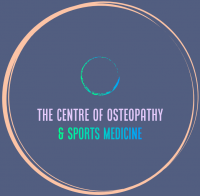Femoro-acetabular impingement (FAI) is a medical condition that affects the hip joint. It occurs when the femoral head and acetabulum rub against each other, causing pain and inflammation. FAI is a common cause of hip pain in young adults, especially athletes and physically active individuals.
There are three types of FAI: Pincer, Cam and Mixed.
Pincer impingement is caused by an overgrowth of bone around the acetabulum, while Cam impingement is caused by an overgrowth of bone on the femoral head. Mixed impingement is a combination of both Pincer and Cam impingement.
Fortunately, there are several treatment methods that can help manage symptoms and improve the injury. Osteopathy, massage and other manual therapies, and exercise prescription are among the most effective techniques for treating FAI.
Osteopathy is a form of manual therapy that focuses on treating the body as a whole rather than just addressing specific symptoms. It involves a variety of techniques, including gentle stretching and massage, to help alleviate pain and improve mobility.
Massage and other manual therapies are also beneficial for managing symptoms of FAI. These techniques help reduce muscle tension and improve circulation in the hip joint, which can help reduce pain and inflammation. Additionally, manual therapies can help improve range of motion and flexibility in the hip joint, which can also help reduce pain and improve mobility.
Exercise prescription is another effective technique for managing symptoms of FAI. It involves a combination of strengthening and stretching exercises that are tailored to the individual's specific needs and symptoms. Strengthening exercises help build strength in the muscles that support the hip joint, which can help reduce pain and improve stability. Stretching exercises help improve flexibility and reduce stiffness, which can also help reduce pain and improve range of motion.
It is also important to maintain a healthy lifestyle to help manage symptoms. Eating a balanced diet, maintaining a healthy weight, and avoiding smoking and excessive alcohol consumption can all help reduce inflammation and improve overall health, which can in turn help manage symptoms of FAI.
In addition to these techniques, some individuals may also benefit from surgical intervention to correct the underlying structural abnormalities that cause FAI. However, surgery is typically reserved for cases where conservative treatment methods have been ineffective.
Overall, the key to managing FAI is to take a comprehensive approach that involves a combination of different treatment methods. By working with a qualified osteopath, individuals with FAI can get developed a customized treatment plan that addresses their specific needs and symptoms, allowing them to manage pain and improve function in the hip joint.

